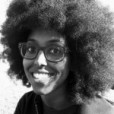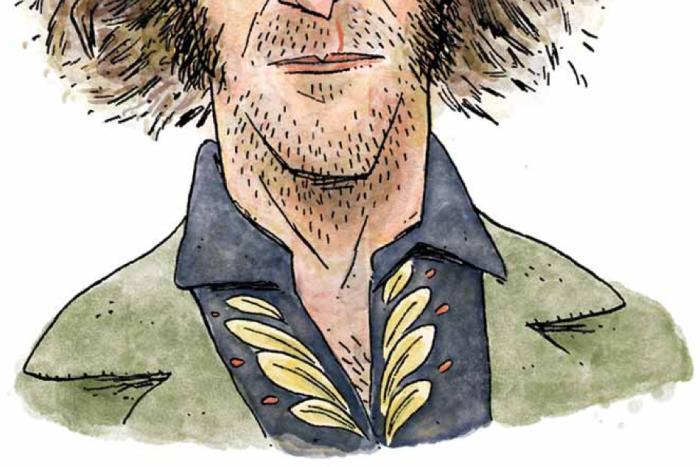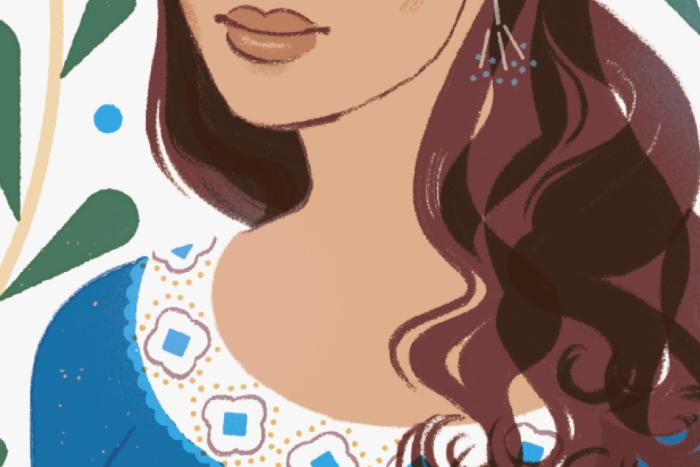
Illustration by Jeremy Sorese
What's in a face? This week, we invited ten writers to take part in a statuette-free celebration of what draws us to the people we can't stop watching. Read the whole series here.
Women are asked to put forward, to a certain extent, a mask. And for black women, that has taken on greater significance, because the standard of beauty has not necessarily had the space for different definitions of beauty. I’m trying to find my own version of what makes me feel beautiful. ” - NYT Interview with Tracee Ellis Ross
I can see Tracee Ellis Ross’s windpipe through her eyes, the resonance both diaphragm and vocal cords are all too swift to conjure. I can feel that rise in blood pressure and elevated heart rate sublimating underneath. And then there is the heat. It looks exhausting and essential, a routine equilibrium. Whatever else it may reveal, much of the bewitching in Ross’s face lies in this corneal rendering of larynx and lung. It goes beyond smizing. What one sees in Ross’s eyes is unrelenting laughter, the most incendiary form of nonviolent protest to which a face can aspire. That is to say, even her eyelashes are deafening. Even her blinking. I’m surprised we’ve lasted this long.
Within the past decades, the mask to which Ross refers has experienced more freedom than that which frames it. This is one reason why so much attention has been paid to the increase in black women leads with natural hair on prime time television. Ross is often vocal about the importance of her physical identity. “I'm very conscious of how I wear my hair on the show, and yet it's the way I wear my hair as Tracee,” she told Entertainment Weekly. “You hire me, you hire my hair and you hire my ass. It's all coming with me.” Ross’s curls are clearly an extension of herself—something she lives in, not with. She is insistent that others have the opportunity to see themselves represented in more than compromised fragments. At her recent NAACP Image Awards acceptance speech, Ross exclaimed, “I am more than my parts, and we all are. And we all as women need to continue to change our gaze from how we are seen to how we are seeing.”
I would like to know more about how Ross is seeing; I want to know what fuels the blaze and if it’s changed without our noticing. If the wide mouth with the red lip is doing more work or less; if it’s struggling to keep up with the top half; if it hungers for the cinematic; where the gums will show; what the teeth will carry by the nape; if the eyebrows will be thick; if the brow will be hidden; if the furrowing will lend itself to a mathematics of black assertion; what molting, if any, is bound to take place. I want to know. Because for now, it feels as though Ross’s gaze is trained beyond the camera, beyond the present, and squarely on viewers who will someday live among enough public acceptance to take her efforts for granted. I can see the silent staccato in every photograph she takes. I am eager to see what it pierces.






